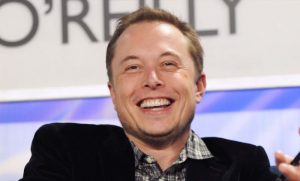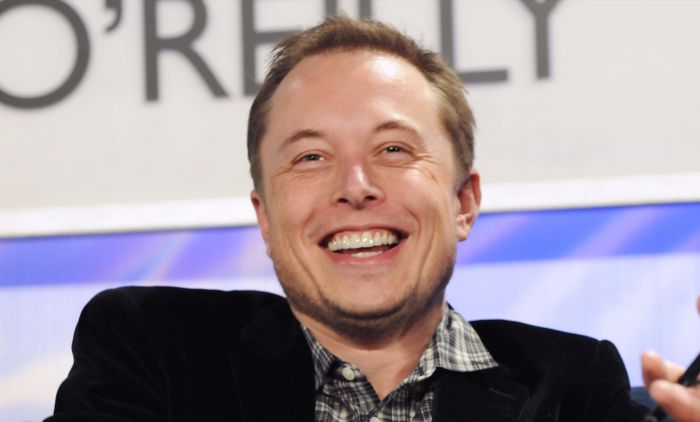Elizabeth Warren’s new bill seeks to radically alter US corporate governance; America’s top CEOs earned 312 times more than their average workers last year; regulators are after Facebook for discriminatory housing ads; Elon Musk faces no more than a slap on the wrist from the SEC, experts say; and what is “the biggest policy mistake of the last decade”?

- “What are the obligations of corporate citizenship in the US?” asks Senator Elizabeth Warren (D-Mass.) in a Wall Street Journal op-ed in which she unveiled her new Accountable Capitalism Act, a bill that would require corporate directors to consider the interests of all stakeholders—not just shareholders—when making corporate decisions. “For much of US history,” she writes, “Corporations sought to succeed in the marketplace, but they also recognized their obligations to employees, customers and the community…This approach worked. American companies and workers thrived.” In recent decades, however, corporations changed their approach to focus solely on shareholders, a decision which had a “tremendous effect” on the economy. “In the early 1980s, large American companies sent less than half their earnings to shareholders, spending the rest on their employees and other priorities. But between 2007 and 2016, large American companies dedicated 93 percent of their earnings to shareholders. Because the wealthiest 10 percent of U.S. households own 84 percent of American-held shares, the obsession with maximizing shareholder returns effectively means America’s biggest companies have dedicated themselves to making the rich even richer,” writes Warren. Vox’s Matthew Yglesias has a good summary of Warren’s bill, which the National Review’s Kevin D. Williamson mocks as “batty” and also “the largest seizure of private property in human history.”
- On a related note, new figures from the Economic Policy Institute show that in 2017 the CEOs of America’s 350 largest companies earned 312 times more, on average, than their workers. In 2017, according to the report, CEOs got a 17.6 percent pay rise in 2017—an average rise of $3.3 million—while their employees’ wages rose by just 0.3 percent.
- “I don’t know of any politician who would have turned down Goldman Sachs on principle,” perennial Washington insider Vernon Jordan tells the Financial Times.
- Members of Tesla’s board are reportedly in a panic over Elon Musk’s constant (and potentially illegal) Twitter habit. Despite widespread speculation that Musk’s might get into trouble with the SEC over his failure to back up his Twitter declaration that he has “secured” funding to take Tesla private, Reuters quotes legal analysts who believe that Musk and Tesla will get away with no more than a slap on the wrist. “I expect Tesla to pay zero,” Georgetown Law professor Urska Velikonja told Reuters, while two other legal experts estimated that Musk’s potential fine would “probably be less than $200,000.”
- In a testimony before the US Senate, FCC chairman Ajit Pai revealed that White House counsel Don McGahn called him to ask about the status of Sinclair’s now doomed acquisition of Tribune in July, around the time that Pai, citing “serious concerns” regarding the deal, proposed transferring it to an administrative law judge. Last week, the $3.9 billion Sinclair-Tribune merger exploded, with Tribune filing a lawsuit against Sinclair for breach of contract. As many still wonder how Sinclair was able to “squander the most favorable regulatory environment in decades,” an anecdote reported by Bloomberg’s David McLaughlin and Todd Shields might begin to answer this question: when they were told by the DOJ’s antitrust chief Makan Delrahim that the DOJ would only approve the merger if Sinclair agreed to sell stations in markets where both companies competed, a Sinclair official reportedly replied by saying “Sue me.”
- The US Department of Housing and Urban Development is alleging that Facebook’s advertising tools allow landlords and real estate brokers to engage in housing discrimination, reports ABC. ProPublica first reported that Facebook’s advertising system allows advertisers to exclude minorities back in 2016, and then again in 2017, as HUD began investigating and the National Fair Housing Alliance later sued the company.
- An investigation by AP revealed that many of Google’s services and apps, on both Android devices and iPhones, store users’ location data even when users explicitly opt out of location tracking. Following this report, Google reportedly began clarifying to users that it still tracks their location even after they turn off their location history.
- Also, hundreds of Google employees have signed a letter demanding more transparency from Google regarding the company’s plans to build a censored version of its search engine for China. Google, reported Ryan Gallagher in The Intercept last week, has been secretly working on a Chinese version of its search engine that will “blacklist websites and search terms about human rights, democracy, religion, and peaceful protest” since the spring of 2017. Now, hundreds of its employees argue that its plans “raise urgent moral and ethical issues.”
- Reuters’ Cate Cadell, meanwhile, quotes Chinese government documents that reveal the quiet proliferation of new lab-tested surveillance technologies throughout China. “The documents provide a rare glimpse into the numbers behind China’s push to arm security forces with high-tech monitoring tools as the government clamps down on dissent,” she writes.
- A separate, damning investigation from Reuters by Steve Stecklow looks at Facebook’s failure to respond to accusations that its platforms plays a key role in the ethnic cleansing of Rohingya Muslims in Myanmar. Four months after Facebook CEO Mark Zuckerberg promised to act to stop the spread of misinformation and incitements to violence against Rohingya through Facebook, Reuters found more than 1,000 posts, comments, images, and videos inciting violence against Rohingya available on the social network.
- Amazon is vying to acquire indie-focused movie theatre chain Landmark Theaters, reports Bloomberg. Also, has Jeff Bezos become more powerful in Washington, DC, than Donald Trump?
- In the New York Times, a piece by Nicholas Confessore explores how a group of privacy activists in California managed to win over Silicon Valley in its own backyard and pass the toughest online privacy law in the US. The bill, which does not take effect until 2020, still faces attempts to gut it in the state legislature.
- In The Week, Ryan Cooper writes about “the biggest policy mistake of the last decade”: austerity, or more accurately, the “refusal” by anti-Keynesian economists and policymakers to seize the opportunity to stimulate the economy during the height of the Great Recession. “The evidence for the Keynesian position is overwhelming. And that means the decade of pointless austerity has severely harmed the American economy,” he writes. On Twitter, Paul Krugman concurred with his assessment, adding that “What [Cooper] doesn’t say is that while anti-Keynesians have been proved utterly wrong, none of the prominent voices—not one, as far as I can tell—has admitted error, or learned from it.”
- According to the Wall Street Journal, the Trump administration’s plan to roll back the Volcker rule is encountering resistance from the banking industry, who famously spent years fighting it. Lawyer’s representing some of the country’s largest banks, reports the Journal, told the Federal Reserve that the revised version of the rule “could complicate compliance and hamper trading in asset classes not currently covered by the rule.”
- From the New York Times: President Trump’s trade war is rattling China’s leaders. In an interview with the Wall Street Journal, Trump said he believes his controversial tariffs will save the US steel industry. So far, argues Vanity Fair’s Bess Levin, this has not been the case. On a related note, Lori Wallach of Public Citizen explains why NAFTA should be rewritten.
Stigler Center Goings-On
In the third and final part of their special 3-part series on antitrust law, Capitalisn’t hosts Kate Waldock and Luigi Zingales explore the differences between the EU and the US approaches to antitrust enforcement and hear about double-sided markets from Nobel-winning economist Jean Tirole.
Disclaimer: The ProMarket blog is dedicated to discussing how competition tends to be subverted by special interests. The posts represent the opinions of their writers, not necessarily those of the University of Chicago, the Booth School of Business, or its faculty. For more information, please visit ProMarket Blog Policy.






